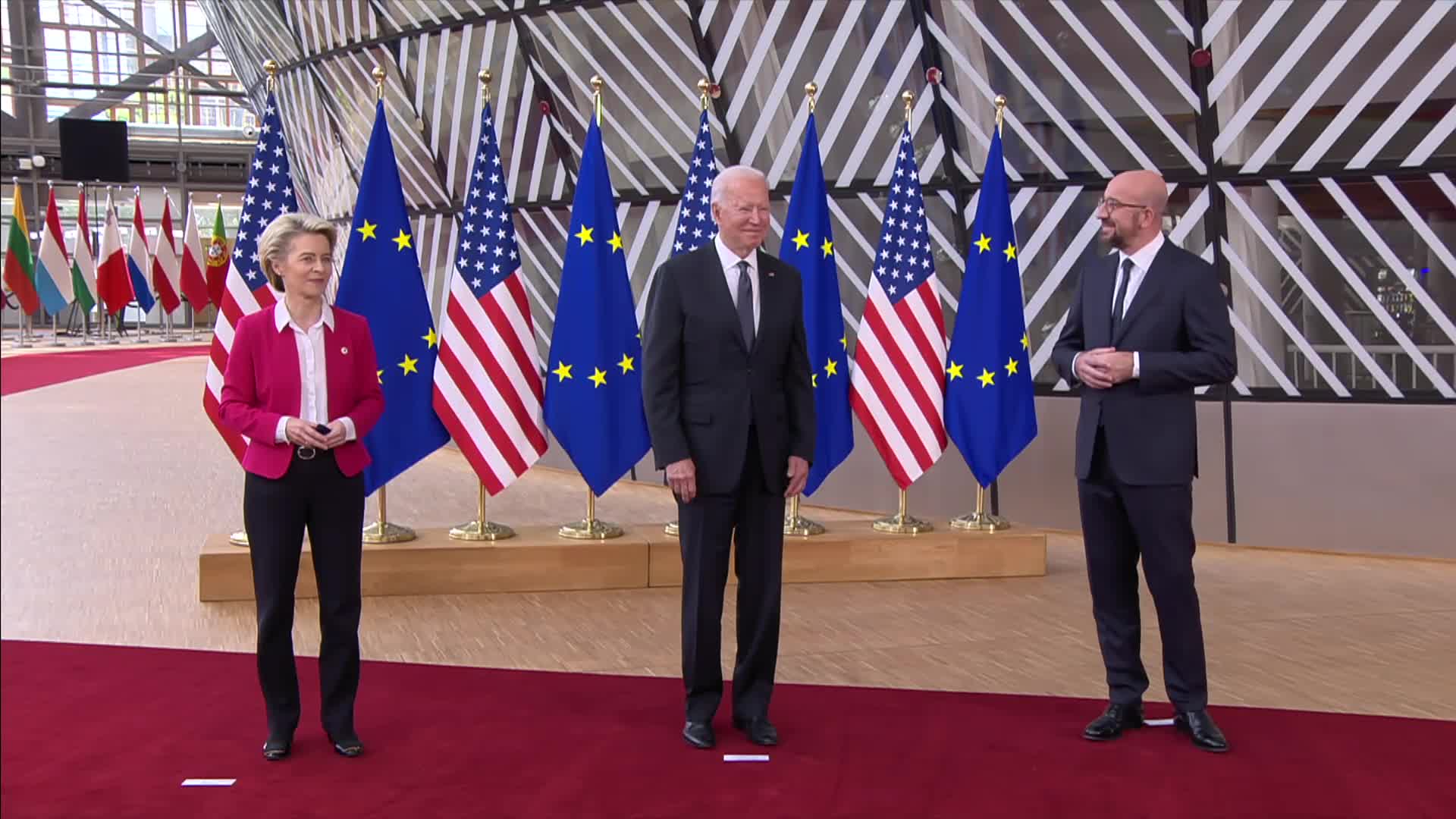EU-US Summit : towards a new transatlantic partnership ?
“America is back” and the Trump years are behind us, as evidenced by the holding of the EU-United States summit in Brussels on June 15, 2021: being the first meeting of this type since 2017, it marked the launch of a renewed partnership and a joint program for cooperation between the EU and the United States, following a sectoral approach. This meeting notably enabled three major commercial achievements to revive and deepen transatlantic trade in a context of Sino-American tensions.
Civil aircraft cooperation agreement closes 17-year dispute
Leaders Joe Biden, Charles Michel, president of the European Council, and Ursula von der Leyen, president of the European Commission, have committed to creating a cooperative framework for large civil aircraft, taking a major step toward ending the dispute over the sector. After 17 years of dispute between Brussels and Washington before the WTO, this agreement initiates a new transatlantic relationship in the aeronautics sector. At the root of the dispute: illegal subsidies granted to aircraft manufacturers Airbus and Boeing. Under the Trump administration, tensions were exacerbated and the WTO authorized the imposition of taxes on $7.5 billion worth of imported European goods and services, including 25% on wine and 15% on Airbus aircraft.
At the end of the summit, the leaders announced the suspension of punitive tariffs imposed on each other, as part of a five-year truce. The resolution of this dispute, which has plagued bilateral relations, is a strong signal that the Biden administration is moving toward a rapprochement that will create a level playing field and address new industrial challenges.
This search for appeasement reflects an attempt to bring the EU on board in the US tug-of-war with China by strengthening the U.S.-European position. Especially since this former duopoly of aircraft manufacturers is now becoming an oligopoly with the entry of the new Chinese player Comac. This common-sense measure therefore also has the potential to counter the Chinese breakthrough in this sector and to challenge China’s perceived unfair competition practices. The idea is also to set up an effective cooperation model to jointly address other challenges posed by China’s economic model. While it is not certain that a compromise will be reached at the end of this truce, there is a real American will to reach an agreement. Indeed, when the dispute began in 2004, Airbus was gaining ground on the international market to the detriment of Boeing, whereas today the threat comes from China and it is time for unity on both sides of the Atlantic.
Negotiations to resolve steel and aluminum dispute underway
Leaders agreed to begin discussions to resolve the steel and aluminum trade dispute and to lift all additional and punitive tariffs by the end of the year. Ursula von der Leyen announced a working group on this issue that has marred transatlantic relations since Donald Trump announced in 2018 the imposition of taxes of 25% on European steel imports and 10% on aluminum imports, provoking European countermeasures in return.
Lifting these taxes in the spirit of appeasement that prevails today would be a much-awaited political gesture by the EU, which expects strong actions beyond intentions. However, this diplomatic gesture should not change the face of European trade, nor turn the European steel and aluminum market upside down, as prices have risen in an unprecedented manner over the past six months, drowning out the impact of the US taxes.
Moreover, the actual resolution of the conflict is likely to be thorny, as the EU does not have a tariff and trade logic but a border tax logic that is different from the United States. The partnership is not self-evident and leaves the door open to a possible rapprochement with China, whether on the American or European side.
The establishment of an EU-US Trade and Technology Council
It is no longer a question of Europe and the United States entering into a free trade logic, as the Transatlantic Trade and Investment Partnership negotiated since 2013 is no longer relevant. However, a Trade and Technology Council will be created to provide a platform for cooperation on trade, investment, technology, digital issues and supply chains. It embodies a willingness to cooperate in developing compatible and international standards and to promote innovation while avoiding unwarranted new trade or technical barriers. It will enable the partners to align on global technology issues, such as artificial intelligence, cybersecurity, clean technologies… Both sides have already committed to a partnership on rebalancing semiconductor supply chains as a priority.
This third announcement is both the most imprecise and the most structuring for the future of EU-US bilateral relations. At a time when a technological war seems to be underway with China, the issue of technological coordination is central. After a first American and commercial globalization, which was undermined by the Trump years, Biden now has the project of knitting a new one, which will take the form of technological liberalization.


